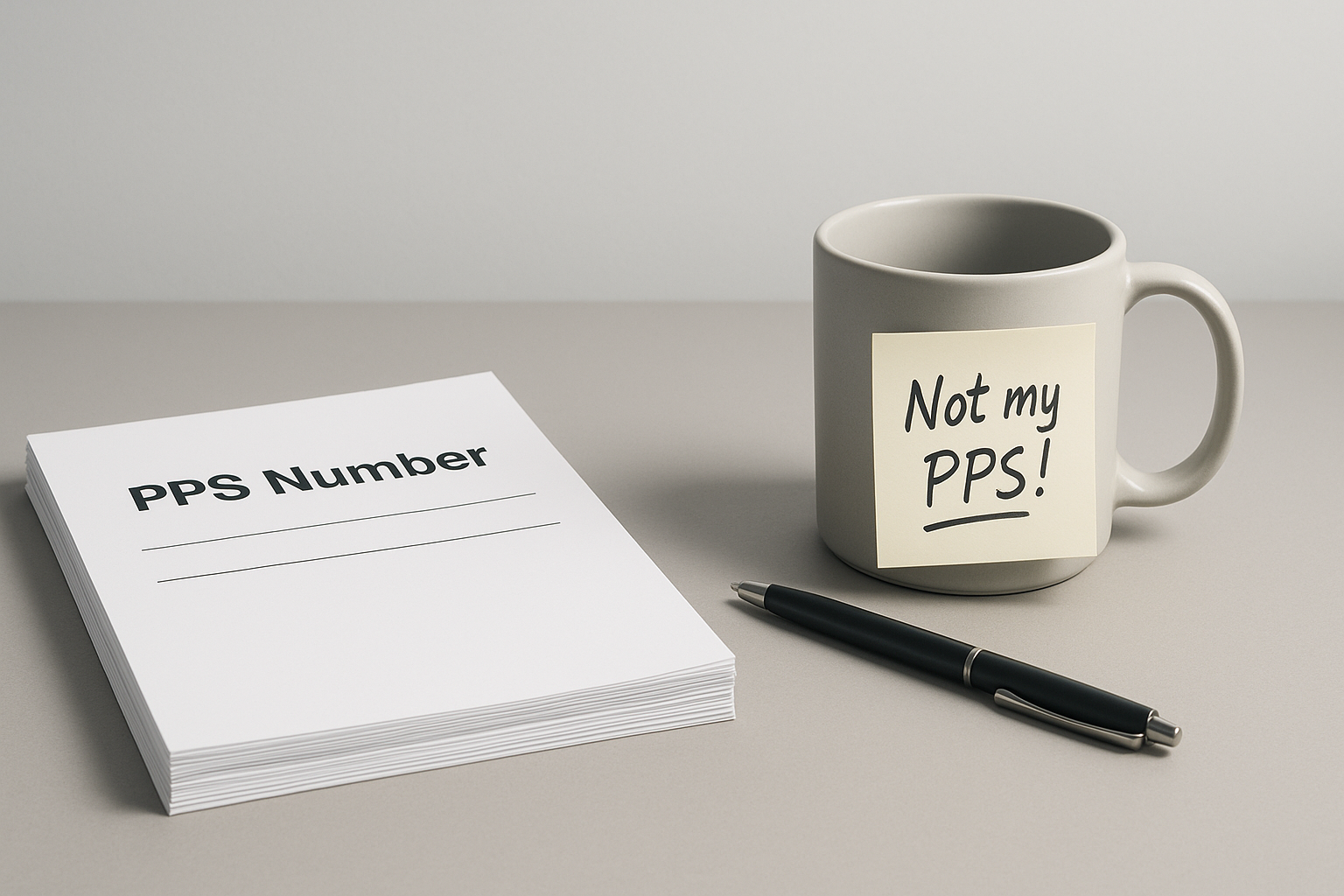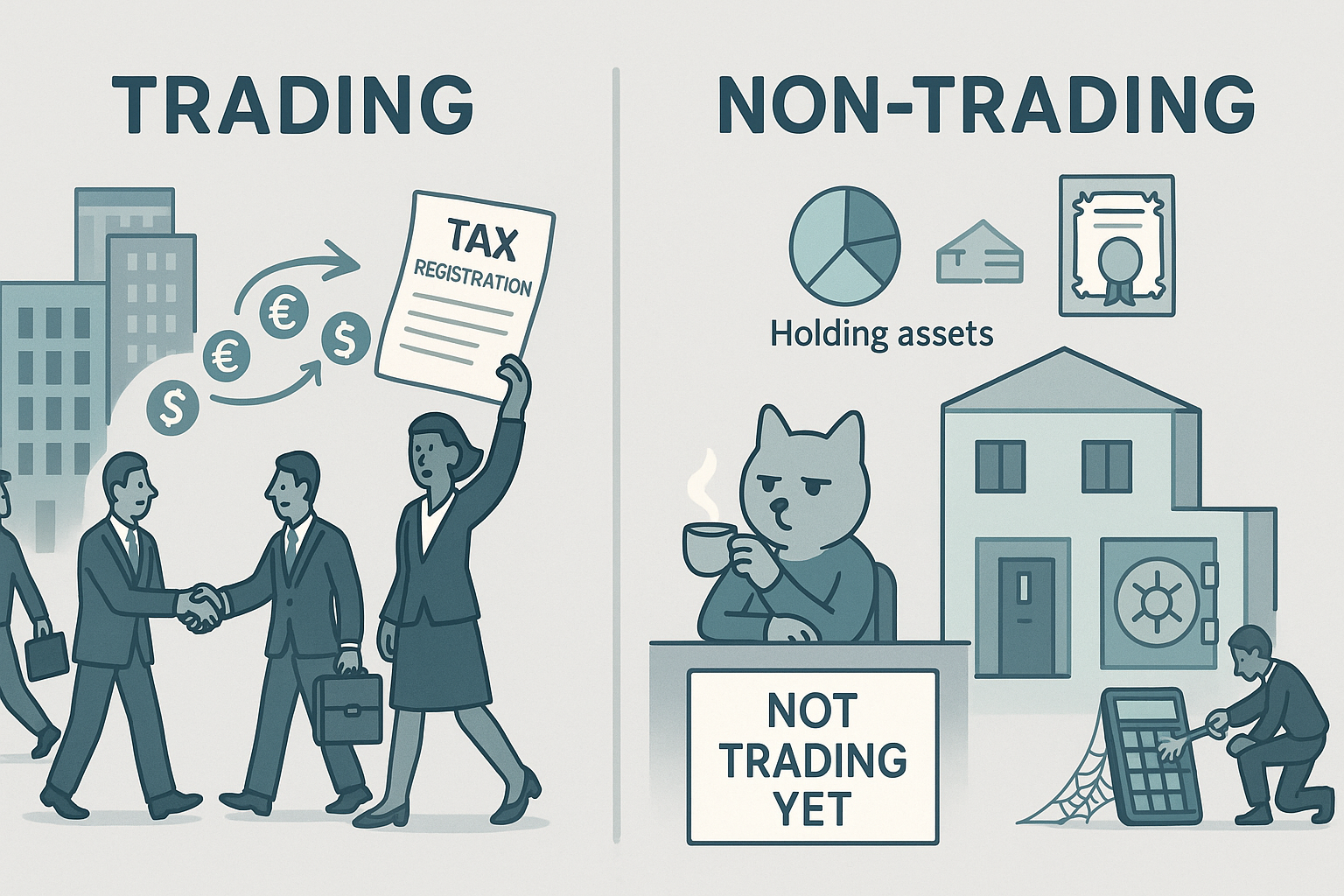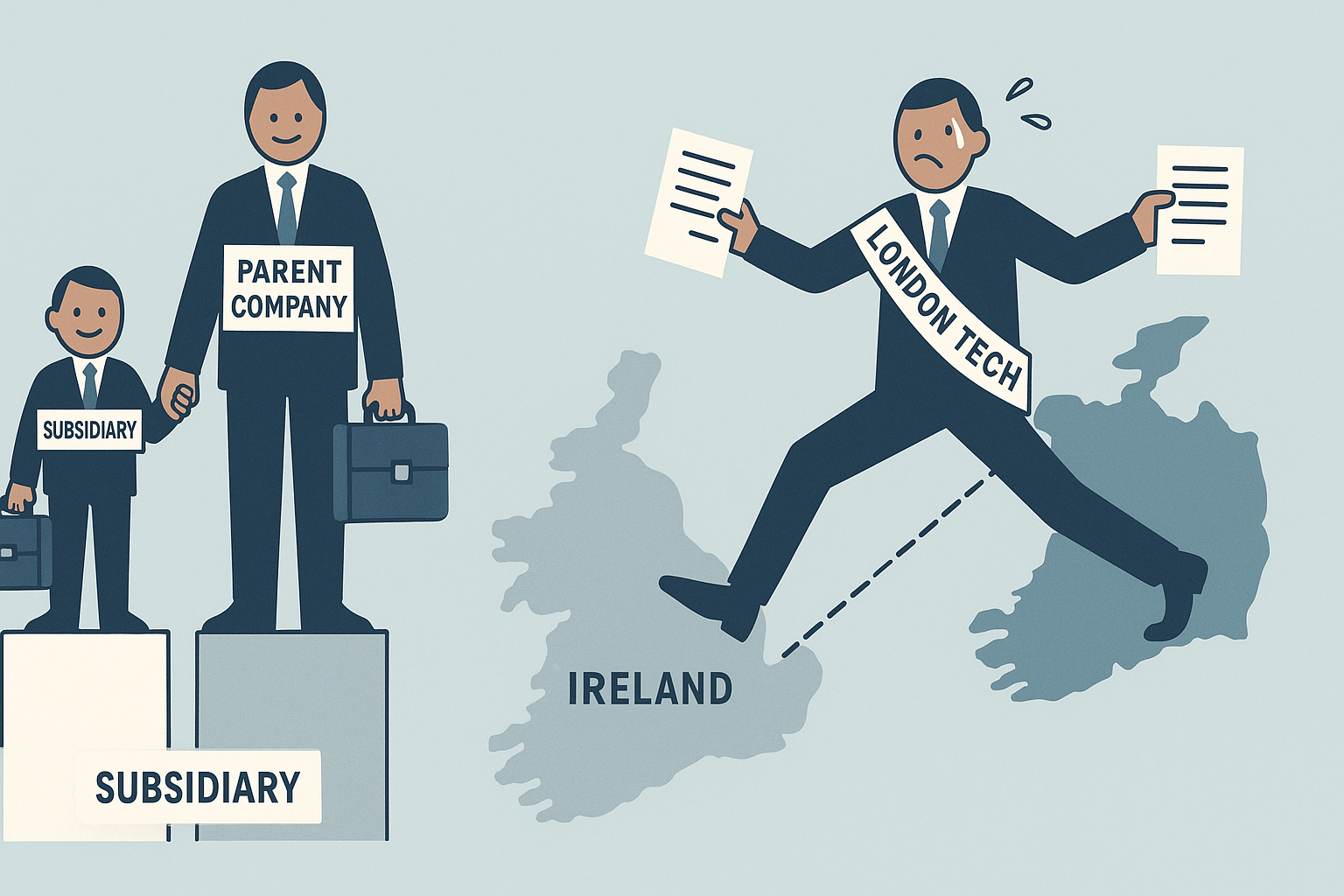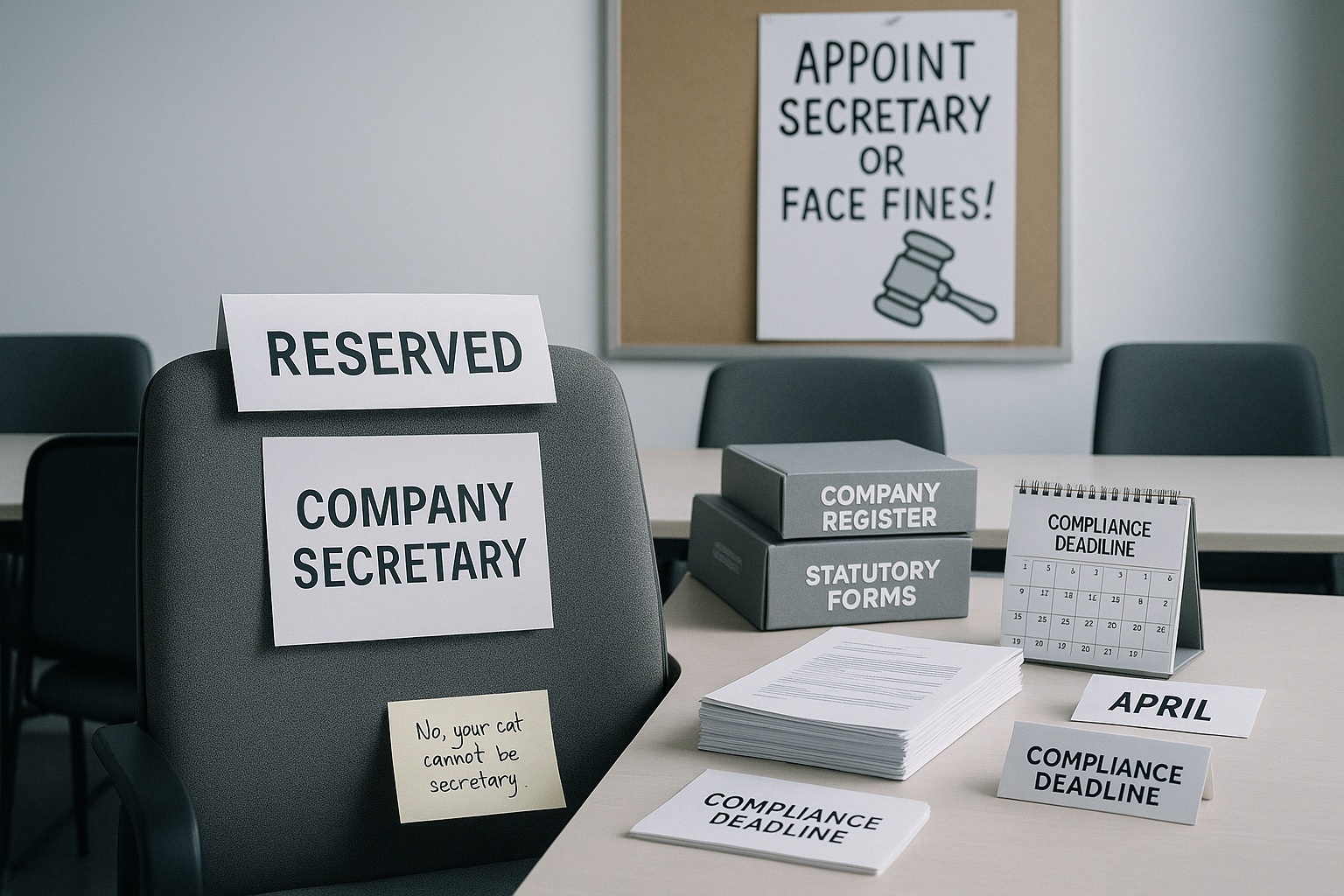This article is for people considering registering a company to do independent consulting work in or from Ireland.
If you are:
- not resident in Ireland;
- currently registered as a sole trader; or
- moving from your PAYE job into having your own company,
this comprehensive guide will walk you through what you need to do to register and the benefits of doing so.
Key Takeaways:
- Limited companies can offer superior tax advantages, with Ireland's low 12.5% corporate tax rate and various business expense deductions
- You need at least one EEA-resident director and a separate Company Secretary, plus an Irish registered office address to register
- Ongoing compliance includes annual returns, corporation tax registration, potential VAT registration, and RBO filing
- The incorporation process is straightforward, and if needed, companies can be wound down for approximately €300

Making the transition from traditional employment or from being a sole trader to consulting work can represent an exciting professional milestone.
Many professionals in Ireland eventually move from PAYE employment into more flexible consulting roles, often discovering that incorporating their own limited company is the first step.
Some of those benefits are set out below:
Tax Advantages of Incorporating Your Consulting Business

Ireland's corporate tax environment makes it particularly attractive for using limited company structures for business. The standard 12.5% corporate tax rate stands as one of Europe's most competitive rates, offering significant advantages over operating as a sole trader where you might face higher personal tax rates.
One of the most appealing aspects of operating through a limited company is the ability to claim business expenses, effectively reducing your tax liability.
These expenses can include:
- Professional development costs such as courses, conferences, and certifications
- Office expenses, including home office setup and maintenance
- Technology and equipment purchases
- Travel costs related to business meetings and client visits
- Professional memberships and subscriptions
- Marketing and website development expenses
When operating as a limited company, these expenses can sometimes overlap with personal use, offering additional tax advantages.
For example, a laptop purchased for business is realistically also going to serve some personal needs too (just don't tell the tax man), or a home office space might qualify for partial expense claims.
Limited Company vs. Sole Trader

Choosing to operate as a limited company rather than a sole trader brings several significant advantages. The most important benefit, other than tax, is the concept of limited liability, which protects your personal assets from business liabilities. This means that if your consulting business faces financial difficulties, your personal savings and property remain protected.
The final most obvious benefit is that operating as a limited company projects a more professional image to potential clients, particularly when dealing with larger corporations or international businesses. Many organisations prefer or even require their consultants to operate through limited companies for compliance and procurement purposes.
Understanding Company Structure
At its core, a consulting company follows the same basic structure as any other limited company in Ireland. The main difference typically lies in the nature of the business rather than the legal structure itself. Here is a guide to the difference between a limited company and a sole trader.
Share Capital Explained
One of the first decisions you'll need to make involves your company's share capital structure. The "authorised share capital" represents the maximum number of shares your company can issue. For most single-person consulting companies, incorporating with 100 or 1,000 shares proves perfectly adequate.
While tech startups might need more complex share structures to accommodate future investors, a straightforward share structure works well for service-based consulting businesses.
Consulting Company Directors

Every Irish limited company must have at least one director who resides in the European Economic Area (EEA) and a Company Secretary. Importantly, if your company has only one director, this person cannot also serve as the Company Secretary.
You'll also need an Irish registered office address for official communications.
Ongoing Obligations

After incorporation, several key obligations require attention:
You must register for corporation tax, typically within 30 days of starting to trade
VAT registration becomes necessary if you exceed the €42,500 threshold for services in a 12-month period (accurate as at 2025)
Annual return filings must be completed with the Companies Registration Office. The first one must be filed 6 months after incorporation.
Your company details need registration with rbo.gov.ie within five months of incorporation
While these obligations might seem daunting initially, they follow a predictable pattern that becomes routine over time. If it's a concern - Open Forest provide tools and reminders to help you track and fulfil these obligations efficiently. If you set up your company with us, we will make sure you don't miss anything important.
The Reality of Registering a Limited Company
Though establishing a limited company involves more administrative work than operating as a sole trader, the benefits often outweigh the additional responsibilities.
The process becomes manageable once you establish good practices and potentially engage professional help for key tasks like annual accounts preparation.
It's also worth noting that if circumstances change, closing the company remains a straightforward process, typically costing around €300 if it's a basic enough scenario - which simple consulting companies normally are.
This relatively low exit cost makes the decision to incorporate less daunting, knowing you have options if your business direction changes.
Getting Started
To begin the incorporation process, you'll need to:
- Choose your company name
- Prepare necessary documentation, including director details and registered office address
- Decide on your share structure
- Submit your incorporation application
The entire process typically takes just a few days, after which you can begin operating as a limited company. While the journey to becoming a limited company requires some initial effort, the long-term benefits make it a worthwhile investment for most consulting professionals in Ireland.
Remember that while this guide provides a basic overview, you should save yourself some headaches and use a company like Open Forest to make sure you start off right.
How Can Open Forest Help?
Open Forest offers the cheapest and fastest incorporation packages in Ireland including holding companies for €99 including the €50 CRO fee and access to the Open Forest platform so you can keep track of all of your legal, tax and accounting obligations - at no additional cost.
Choose from one of our incorporation packages here and we will take care of the rest.

Stuart Connolly is a corporate barrister in Ireland and the UK since 2012.
He spent over a decade at Ireland's top law firms including Arthur Cox & William Fry.



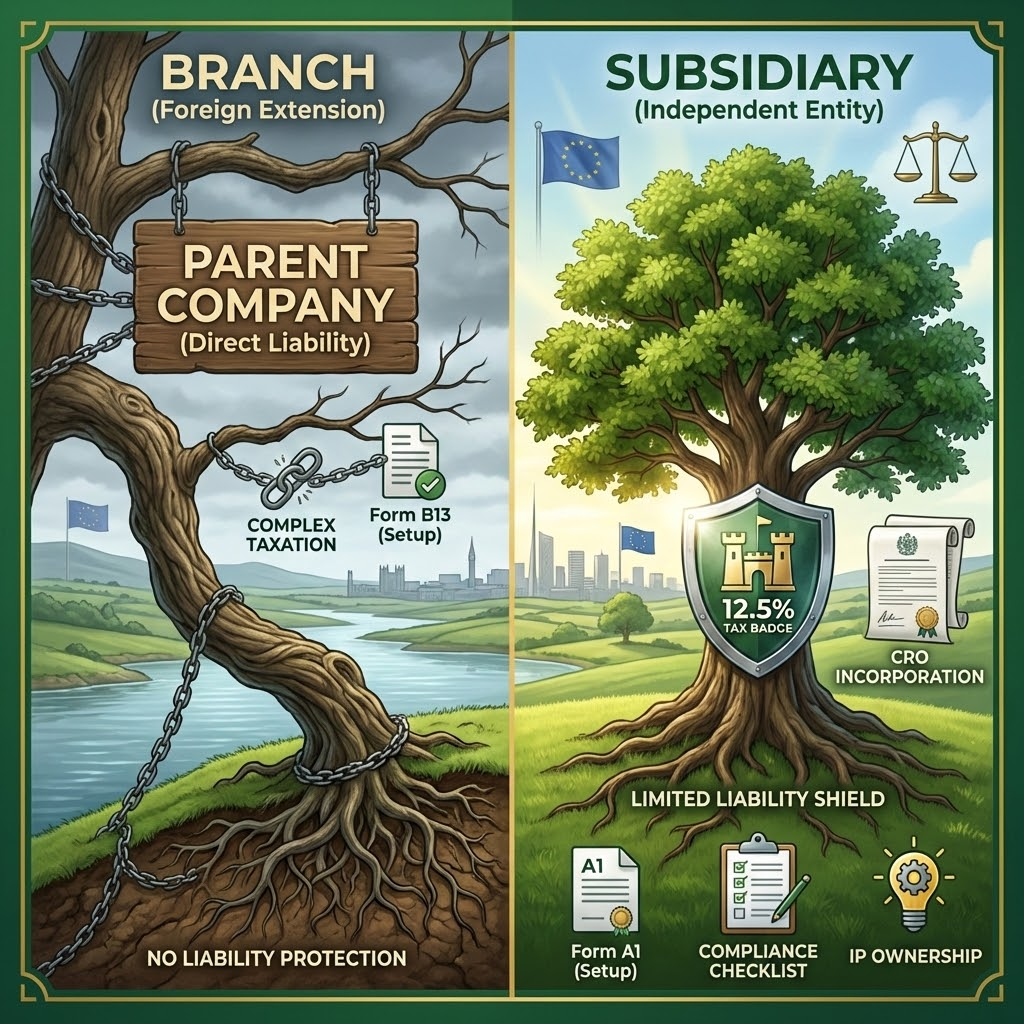
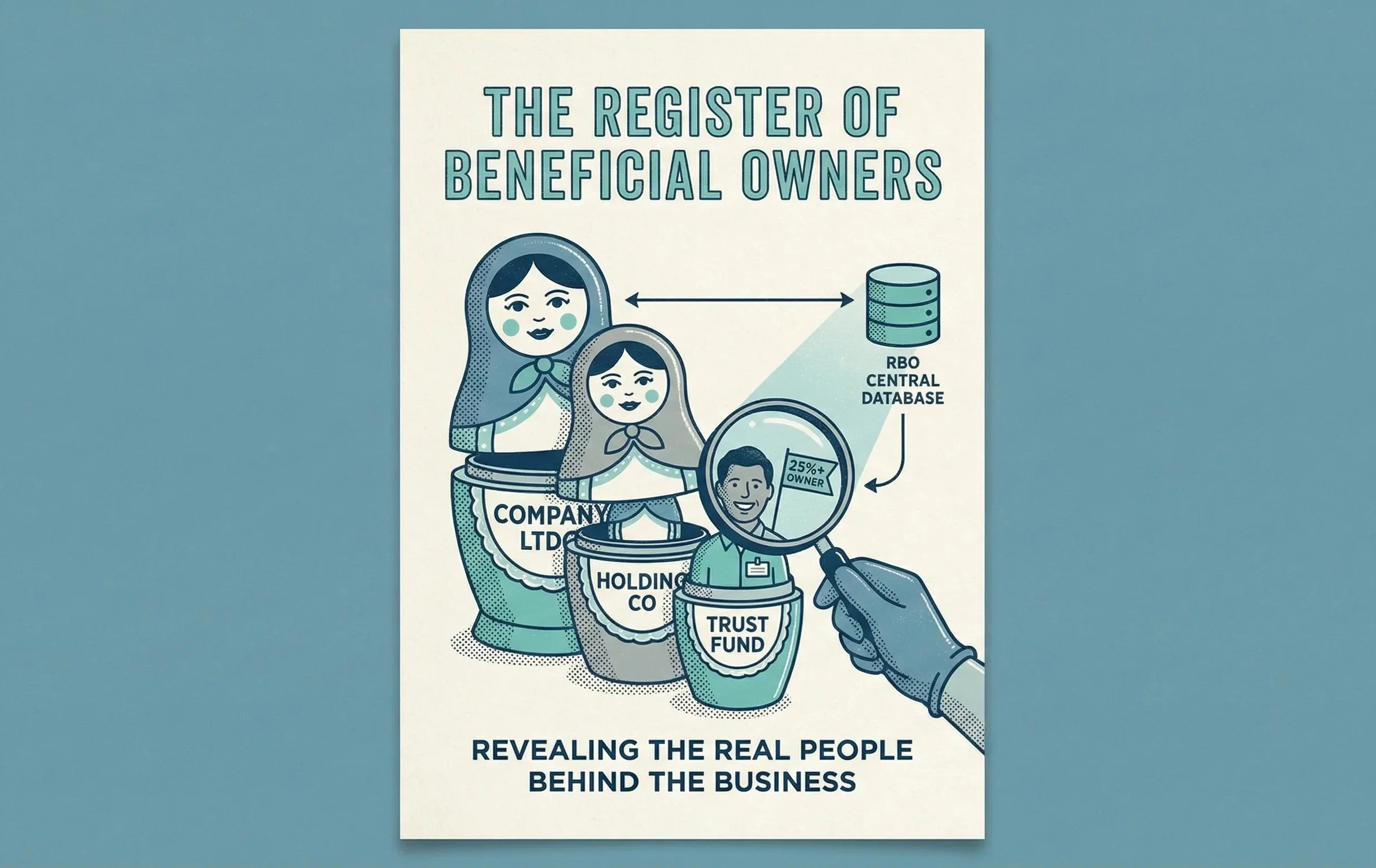
.webp)
.webp)
.webp)
